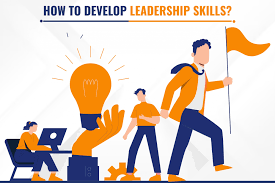The Importance of Developing Skills
Skills development is a crucial aspect of personal and professional growth. Whether it’s learning a new language, mastering a musical instrument, or honing your leadership abilities, acquiring new skills opens up a world of opportunities.
One of the key benefits of skill development is that it enhances your confidence and self-esteem. As you acquire new knowledge and expertise, you become more self-assured in your abilities, which can have a positive impact on every aspect of your life.
Furthermore, developing skills can significantly boost your career prospects. Employers value individuals who are committed to continuous learning and improvement. By investing time and effort in developing new skills, you not only increase your employability but also open doors to new career opportunities.
Moreover, skill development fosters creativity and innovation. When you challenge yourself to learn something new, you stimulate your brain and encourage creative thinking. This can lead to fresh ideas and novel solutions to problems that you may encounter in various aspects of your life.
In today’s fast-paced world, where technology is constantly evolving, staying relevant requires ongoing skill development. By keeping abreast of the latest trends and developments in your field, you ensure that you remain competitive and adaptable in an ever-changing environment.
In conclusion, the development of skills is essential for personal growth, career advancement, creativity, and adaptability. Embrace the journey of learning and never underestimate the transformative power that acquiring new skills can have on your life.
Understanding Skill Development: Key Stages, Priorities, and Examples
- What are the 4 stages of skill development?
- What are the top 3 skills development priorities?
- What are the 5 stages of skill development?
- What is an example of skill development?
What are the 4 stages of skill development?
The four stages of skill development encompass a progression from unconscious incompetence to conscious competence. Initially, individuals may be unaware of their lack of proficiency in a particular skill (unconscious incompetence). As they become aware of their shortcomings, they move into the stage of conscious incompetence, where they recognise the need for improvement. Through dedicated practice and learning, individuals progress to the stage of conscious competence, where they can perform the skill with focused effort and attention. Finally, with continued practice and refinement, individuals reach the stage of unconscious competence, where the skill becomes second nature and can be executed effortlessly. These stages highlight the iterative process of skill development and underscore the importance of perseverance and dedication in mastering new abilities.
What are the top 3 skills development priorities?
When considering the top 3 priorities for skills development, it is essential to focus on adaptability, critical thinking, and communication. In today’s rapidly changing world, the ability to adapt to new situations and technologies is paramount. Developing adaptability skills enables individuals to navigate uncertainties and challenges with resilience and flexibility. Critical thinking skills are crucial for analysing information, problem-solving, and making informed decisions. Effective communication skills, both verbal and written, are also vital for conveying ideas clearly, building relationships, and collaborating effectively in various personal and professional settings. Prioritising the development of these key skills can empower individuals to thrive in a dynamic and competitive environment.
What are the 5 stages of skill development?
Understanding the five stages of skill development is crucial for anyone embarking on a journey to acquire new abilities. The first stage, known as the “novice stage,” involves initial exposure to the skill, where individuals are just starting to grasp the basics. Progressing to the “advanced beginner stage,” learners begin to develop a more solid foundation and gain confidence in their abilities. The “competent stage” follows, where skills are honed through practice and experience, leading to increased proficiency. As individuals reach the “proficient stage,” they demonstrate a high level of skill mastery and can perform tasks with ease and efficiency. Finally, the “expert stage” represents the pinnacle of skill development, characterised by exceptional proficiency, deep understanding, and effortless execution of complex tasks. Understanding these stages can help individuals navigate their skill development journey effectively and set realistic goals for continuous improvement.
What is an example of skill development?
Skill development encompasses a wide range of activities aimed at enhancing one’s abilities and expertise in a particular area. An example of skill development could be learning to code in a programming language such as Python. By acquiring proficiency in coding, individuals can develop problem-solving skills, logical thinking, and the ability to create software applications. This not only opens up career opportunities in the tech industry but also improves cognitive abilities and fosters creativity. Skill development through coding is a practical and valuable example that demonstrates the transformative impact of acquiring new skills.

